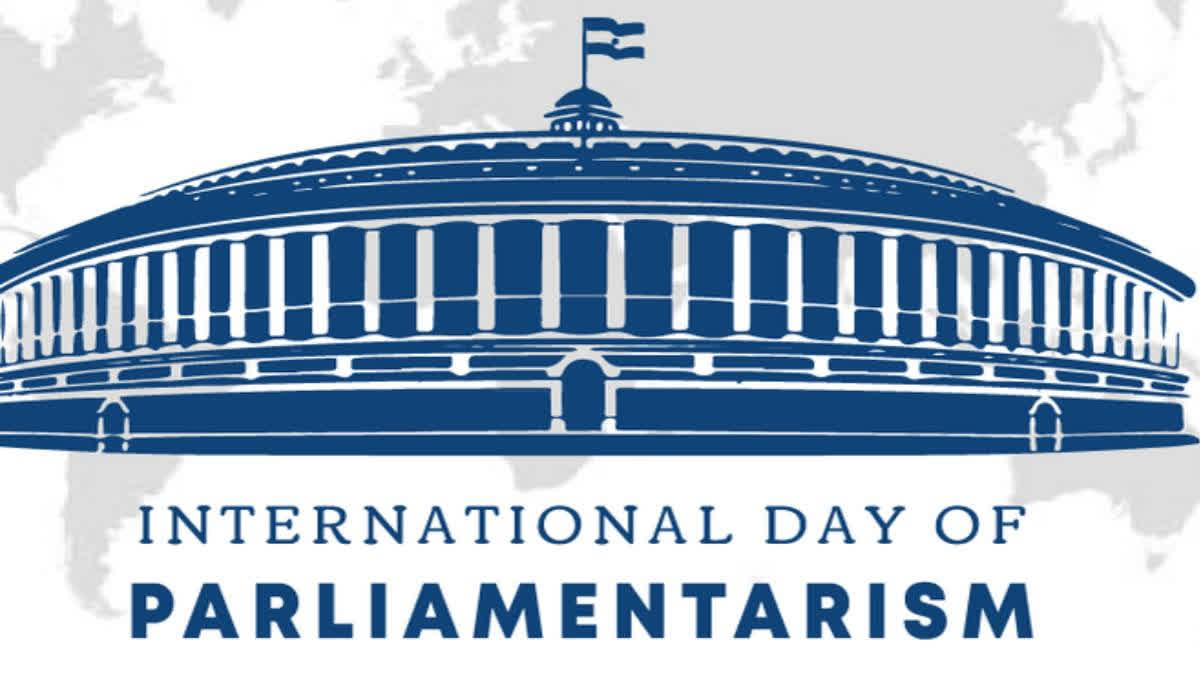New Delhi: The International Day of Parliamentarism is celebrated every year on June 30 aiming to build relationships and promote cooperation between National Parliaments. Coinciding the occasion, many Parliaments encourage their members to participate in inter-parliamentary organisations, bilateral exchanges and other parliamentary diplomacy initiatives.
History and Significance
The International Day of Parliamentarism is observed every year on June 30, the date in 1889 on which the IPU was founded. The Day was declared in 2018 through a United Nations General Assembly Resolution. According to the UN resolution, instituting an International Day for Parliaments is particularly important for Parliamentary democracy, when people are losing trust in political institutions and democracy itself is facing challenges from populist and nationalist movements.
“If democracy is to thrive, then Parliaments, as the cornerstone of functioning democracies, need to be strong, transparent, accountable and representative,” the UN resolution said.
The International Day of Parliamentarism also marks the anniversary of the Inter-Parliamentary Union (IPU). Established in 1889 as the formal representation of the parliamentary systems of governance, the IPU is a global organisation that works to promote democratic governance, human representation, democratic values and the civil aspirations of a society.
Public Engagement In The Work Of Parliament
The third Global Parliamentary Report examines public engagement in the work of Parliament. It recognises that Parliaments have a vital role to play in addressing the challenges of today’s rapidly changing world, by enabling people to connect with and participate in the law-making, policy formulation and oversight processes that impact their lives now and into the future.
Benefits of Public Engagement
According to the Global Parliamentary Report-2022, there are many reasons why public engagement is mutually beneficial for Parliaments, parliamentarians and the community. Above all, it supports Parliament’s main functions by giving access to the breadth and depth of information and ideas that are needed for representation, law-making, public policy formulation and oversight that meet people’s expectations and aspirations.
Genuine Dialogue Builds Trust
Amid today’s information overload, Parliaments need to make every effort to be visible. By offering genuine opportunities for dialogue between people and their elected representatives, Parliaments can help to build trust and reinforce their relevance. There should be an emphasis on interacting with and listening to the community, and not just on informing.
Parliaments need to be future-focused
The Global Parliamentary Report serves as a clarion call for Parliaments to be future-focused in their engagement. It outlines some key initiatives for Parliaments to think about and act on taking youth seriously, leaving no one behind, transforming through technology, encouraging innovation and working together.
Women In Parliament
According to the IPU’s latest Women in Parliament 2023 report, the global proportion of MPs, who are women, has inched up to 26.9 per cent, based on elections and appointments that took place in 2023.
This represents an increase of 0.4 percentage points year on year, a similar growth rate to 2022. However, the growth is slower than in the preceding years--elections in 2021 and 2020-- saw an increase of women MPs of 0.6 percentage points.
Indian Scenario
Following the recently held Parliament elections, India has elected 74 women MPs to the Lok Sabha. The number is four fewer than in 2019 and 52 more than in India’s first elections in 1952. In 1952, women made up just 4.41 per cent of the strength of the Lower House.
However, the present number of 74 women make up just 13.63 per cent of the elected strength of the Lower House. It is also much less than the 33 per cent that will be reserved for women after the next delimitation exercise.



